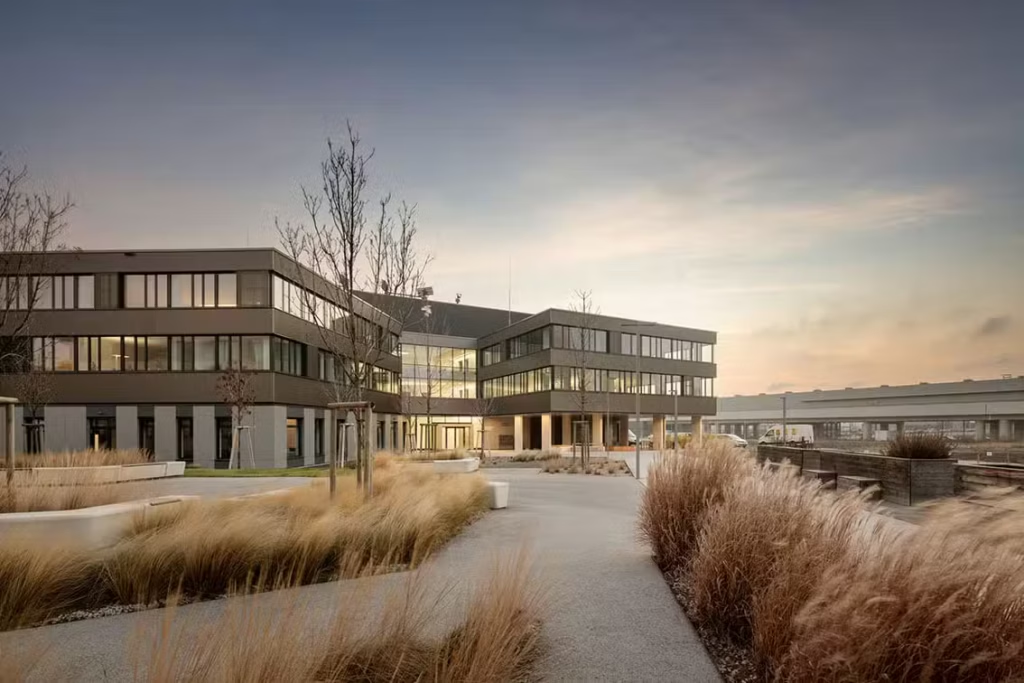In the festive atmosphere of Palais Eschenbach, guests received initial insights into the content of the new program of the University of Sustainability – Charlotte Fresenius Private University – New Workshop Series “ESG & Circular Economy in the Age of AI”.

With a high-profile event at Palais Eschenbach, the University of Sustainability – Charlotte Fresenius Private University (CFPU) celebrated the launch of its new executive workshop series "ESG & Circular Economy in the Age of Digitalization & AI" on Monday evening. Launching in January 2026, the program, in cooperation with the Austrian Trade Association (ÖGV) and the Austrian Retail Association, offers practice-oriented executive training and explores current key topics at the intersection of sustainability, circular economy, and digitalization.
At the kick-off event, renowned speakers such as Professor Dr. Martin Kreeb, Professor of Sustainability Management and Rector of the CFPU, Reinhard Backhausen (B.Sc., Austrian Trade Association), Thomas Glatz (Interzero), Gregor Gluttig (Circular Economy Forum Austria), Professor Dr. Wolfgang Wimmer (Vienna University of Technology), and Julia Newland (Microsoft Austria) offered initial insights into the content of the new CFPU offering.
"With a strong team, we want to demonstrate how efficient and intelligent solutions can set new standards for the economy. Our goal is to provide practical support to companies and encourage them to actively shape change," announces Professor Dr. Martin Kreeb.
"The Austrian Trade Association is the oldest business association in the country. Since its founding in 1839, it has been dedicated to the central issues of business, labor, and politics – today as it was then. While sustainability has only increasingly come into public focus in recent years, it has long been a central topic in professional circles. Why? Because the circular economy will be the economic system of the future. Therefore, we have set ourselves the goal of promoting this topic and, together with the University of Sustainability – Charlotte Fresenius Private University, are committed to continuing education and support," emphasizes Reinhard Backhausen, B.Sc.
"To truly implement the circular economy, we need the right approach, conviction, bright minds with drive, and above all, cooperation: away from isolated solutions and toward industry-wide concepts. The circular economy is possible—but we must start now," explains Thomas Glatz.
"A chip crosses over 70 borders before it's installed; a pair of blue jeans travels thousands of kilometers before it ends up on a shelf in Austria. Yet only two percent of companies have insight into their Tier 2 suppliers. Circular economy is therefore not only ecologically imperative, but above all a matter of economic efficiency and strategic innovation," explains Gregor Gluttig.
"True value creation with circular products and new business models can only be achieved if we consider ecological, social, and economic factors together—it is not an end product, but a process that requires responsibility and a future orientation," emphasizes Professor Dr. Wolfgang Wimmer.
"Given the increasing complexity of global supply chains, collaborations are more important than ever – they create space for knowledge transfer and set common standards. Technologies such as blockchain and artificial intelligence open up enormous opportunities that we should resolutely seize," says Julia Newland.
The offer at a glance
The new Executive Workshop series at the Charlotte Fresenius Private University – University of Sustainability is modular in design and comprises eight workshops, each held monthly from January 19 to June 8, 2026, in the ballroom of Palais Eschenbach in Vienna. The individual sessions cover a broad spectrum of topics: from the basics of ESG, sustainability, and the circular economy, to digitalization and artificial intelligence, carbon accounting, the EU taxonomy and legal frameworks, sustainability reporting and greenwashing, resilient supply chains, circular design, and successful business models.
The participation fee is €295 per individual module or €1,770 for the complete package, representing savings of over 25 percent compared to individual bookings. Various funding options are also available, such as through the WAFF (Federal Association for the Promotion of Education and Research) or other regional programs.
Guests from business, science and politics
Among the guests at the opening event were numerous personalities from business, science and politics, including Axel Dick (Quality Austria Certification), Fritz Fessler (Voice Business), Ute Grabner (marketer), Heidi Hrusa (Yield PR), Katharina Krischke (SPÖ), Mariya Lerch (UniCredit Bank Austria), Ivan Mayorov (Cancom Austria), Julia Regensburger (Wien Energie), Veronika Reinberg (Austrian Society for Environment and Technology), Silvia Renner (Renner Interior Design), Jürgen Schmidt (STRG.at), Santino Schreiner (Interzero Circular Solutions Europe), Ferdinand V. Schütz (Kathrein Privatbank), Lydia Schwarhofer (inloop), Brigitta Schwarzer (INARA) and Berenika Sterba (German Chamber of Commerce in Austria).
